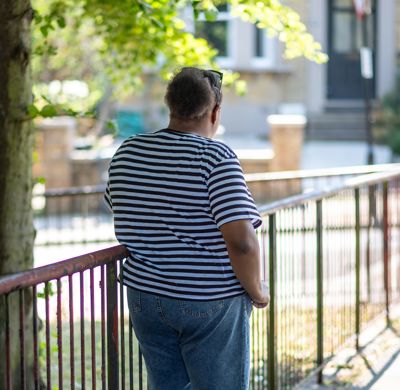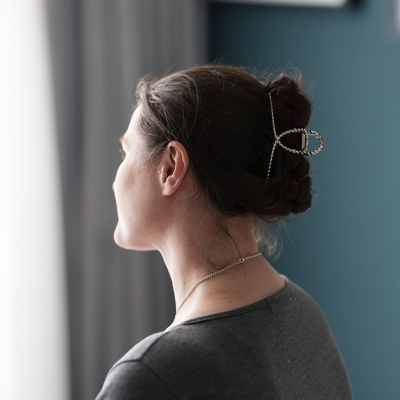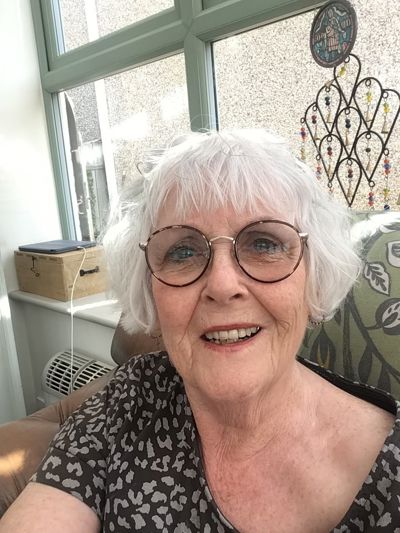“This charity and outreach programme has been a life buoy” – Noriko’s story
14/06/2024
For Carers Week, Noriko shares her difficulty adjusting to life in the UK, especially when her son James became ill. With carers support from Rethink Mental Illness, Noriko feels heard and less alone.
I lived half my life in Japan, where I was born, and half in the UK. I met my British husband whilst he was working in Tokyo. We married, had two sons and became a proper family. My sons had loving grandparents, uncles and aunties. When my husband’s work contract expired, we moved to the UK.
My sons were only toddlers when they had to change their culture, language, food. We felt lost and lonely, losing the casual, warm experiences of my family. It was my son James who bore the brunt of every change we made, without us realising the impact upon him.
James thrived academically, but there was no pastoral care at school. After a year in the UK, my husband lost his job and we lost our first home. He tried several jobs and failed. This led him to form his own business, where I became his unpaid secretary.
Over the years, my husband slowly became an alcoholic. I attended Al-Anon because he was in denial, and became increasingly lost and lonely. I felt as if I was caught in a jam-jar. Finally, I sought work outside of my husband’s sphere, at a museum, which was a source of comfort.
-
I felt as if I was caught in a jam-jar.
At this time, James was finding life more and more challenging. Although he was bright enough to go to university, he dropped out. This lack of resilience affected his driving lessons, which were also abandoned. He dropped his interest in music - playing violin and singing. He doesn’t read any more and stopped playing sports. When my husband died, James decided to stay home and carry on his father's business.
Whilst working, I met another man. We got married, but my second husband had a parsimonious spirit and a lack of warmth for my sons. He wasn’t keen for me to spend time with them, particularly James. I still did because he needed emotional support.
The worst nightmare of my life came in 2018, when I was away in Japan. James was living alone when he became paranoid and delusional. He rang my husband but my husband wouldn’t deal with him and called the police. He was taken to hospital and wasn’t treated with any care.
-
I realised he was suicidal when he tried to get out of the moving car.
James escaped the hospital, so I found him a small flat near us. He hadn’t been treated for his desperate mental condition at this time. He left his flat to scream in the nearby fields, but the public alerted the police and he was taken to hospital; given scant medication and discharged whilst still paranoid.
His paranoia became seriously grave, so much so that he flew to Japan to seek a safe place in my brother’s house. Although surprised by the change in his nephew, my brother looked after him with love and care. It was a miracle that James didn’t exhibit any of his behaviors. In Japan, I knew he’d run out of his medication. This lack of medication was followed by his suicidal act.
After staying with my brother, James arrived at the airport at night. When I met him, he was in overdrive and seemed elated, but I didn’t realise until I started driving him home. I realised he was suicidal when he tried to get out of the moving car. I managed to stay calm, kept driving and asking about his trip. I drove very slowly home.
James was sectioned for four months. In spite of all this, on the day of his discharge, my husband still refused to share the house with him. James was placed in social housing, sharing with another patient until I moved him out to a flat. During lockdown, I had to live with James to supervise him, as there was no service in the NHS.
-
I was always grateful for this intervention and still feel indebted to this charity.
After moving, I had a call from Rethink Mental Illness. They told me that a representative, named Ros, would call and advise me, to regularly check in on me. It was the first time since my son became ill that I had someone who related to me as a carer. It was enormously helpful because much of my mental anxiety was relieved, and I knew I could call upon her when I met difficult situations.
I was always grateful for this intervention and still feel indebted to this charity. It is now five years since I’ve become a carer and I continue to use this service with appreciation. This charity and outreach programme has been a life buoy for me. Ros is someone I can talk frankly with about everything. As I have inherited an adopted country, Ros has helped with the language, convention and culture.



